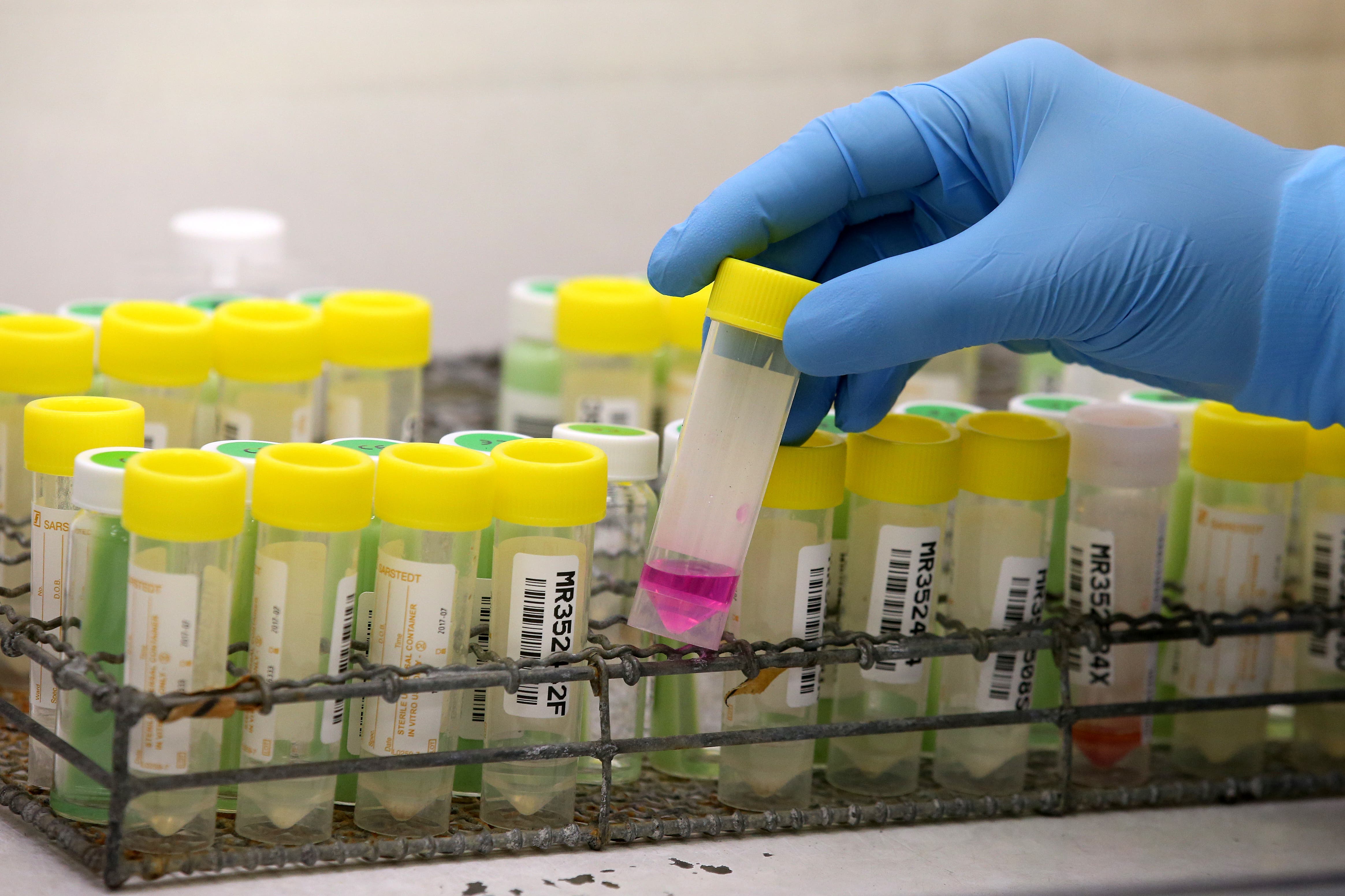TB cases rose 40% in Scotland last year, figures show
Public Health Scotland said the most reported risk factor for the disease ‘was being a refugee or asylum seeker’.

Your support helps us to tell the story
From reproductive rights to climate change to Big Tech, The Independent is on the ground when the story is developing. Whether it's investigating the financials of Elon Musk's pro-Trump PAC or producing our latest documentary, 'The A Word', which shines a light on the American women fighting for reproductive rights, we know how important it is to parse out the facts from the messaging.
At such a critical moment in US history, we need reporters on the ground. Your donation allows us to keep sending journalists to speak to both sides of the story.
The Independent is trusted by Americans across the entire political spectrum. And unlike many other quality news outlets, we choose not to lock Americans out of our reporting and analysis with paywalls. We believe quality journalism should be available to everyone, paid for by those who can afford it.
Your support makes all the difference.Cases of tuberculosis (TB) in Scotland increased by just over 40% last year to the highest total since 2017, figures show.
Public Health Scotland (PHS) data shows there were 283 confirmed cases of the disease in 2023 – a 40.8% increase from the 201 recorded the previous year.
With figures dating back to 2000, cases in Scotland saw the “largest annual increase observed to date”, the health body added.
More than two-thirds of those who contracted the disease were born outside of the UK, with the data showing this was the case in 67.5% of all cases in Scotland last year.
Public Health Scotland noted the incidence of the disease in people born overseas was 19.2 times higher than for people born in the UK.
“The most reported risk factor for tuberculosis was being a refugee or asylum seeker,” its latest report said.
It also made clear there is a “strong” link between TB and deprivation, with the figures revealing three out of 10 cases (30.8%) in Scotland last year were in the most deprived areas, while only 10.4% of cases occurred in the most affluent communities.
Cases of the disease – an infection which usually affects the lungs – were found in 13 of Scotland’s health board areas in 2023, with NHS Greater Glasgow and Clyde having the largest number, with 108 cases.
There were 44 cases in the NHS Lothian area and 28 in NHS Grampian, the data showed.
NHS Ayrshire and Arran and NHS Dumfries and Galloway both reported 200% increases in the number of cases – with cases in the former rising from four to 12, and from two to six in the latter.
The increase last year comes after Scotland had “observed a decreasing trend in tuberculosis case numbers and incidence since 2010” – with the exception of a small rise in 2021.
However Public Health Scotland said despite the increase, “Scotland remains a low incidence country”.
The incidence rate for TB in Scotland was 5.2 cases per 100,000 population in 2023, with this almost five times lower than 25 cases per 100,000 people reported to the European region for 2022 – the latest year for which figures are available.
With eight people in Scotland dying before completing treatment for TB in 2022, Public Health Scotland also said the case fatality ratio of 4% was the lowest since surveillance began in 2000.
The Scottish Government is aware of an increase in the incidence of TB and is in regular contact with Public Health Scotland
While TB can be treated with antibiotics, it can be serious if left untreated.
Common symptoms include a cough that lasts three weeks or more, with sufferers sometimes coughing up mucus with blood in it.
Those with the disease can also struggle with exhaustion, a high temperature or night sweats, a loss of appetite and weight loss, and feeling generally unwell.
If the disease spreads to other parts of the body, patients may develop swollen glands, body aches, swollen joints and stomach or pelvic pain, and could also suffer from headaches, constipation, being sick, headaches, feeling confused, a stiff neck and a rash on parts of the body.
A Scottish Government spokesperson said: “The Scottish Government is aware of an increase in the incidence of TB and is in regular contact with Public Health Scotland.
“Although numbers remain low, we will continue to work with PHS and the UK Health Security Agency to better understand the contributing factors to the increase.”